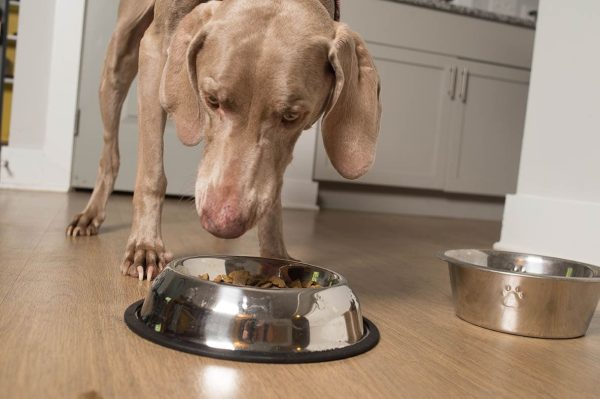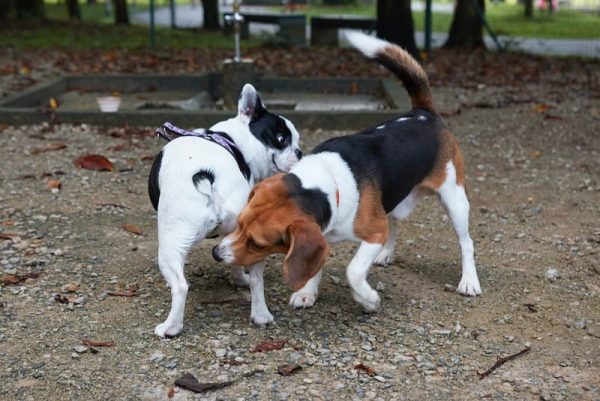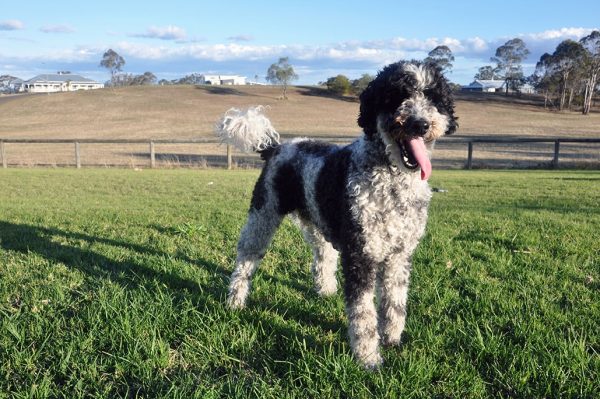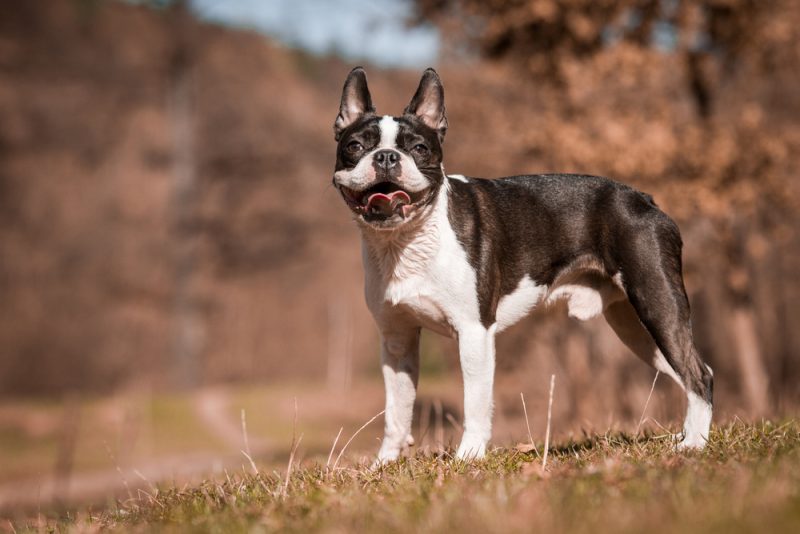In this article
The Maltese is a toy breed and among the most popular in the United States. The American Kennel Club ranks them number 37 on its popularity list,1 and we’re not surprised! This tiny but charming, sweet, and lively canine has a giant heart and a personality to match.
No dog comes without challenges, though, and the Maltese is no exception. In this post, we share both the upsides and downsides of Maltese parenting to help you get a balanced perspective on what it might be like.

Pros of Having a Maltese
1. Adaptability
The Maltese is suitable for life in both big homes and small, including apartments, because they’re little and don’t need an excessive amount of exercise. As long as their environment is clean, comfortable, and of course, full of love, the Maltese will be happy anywhere.
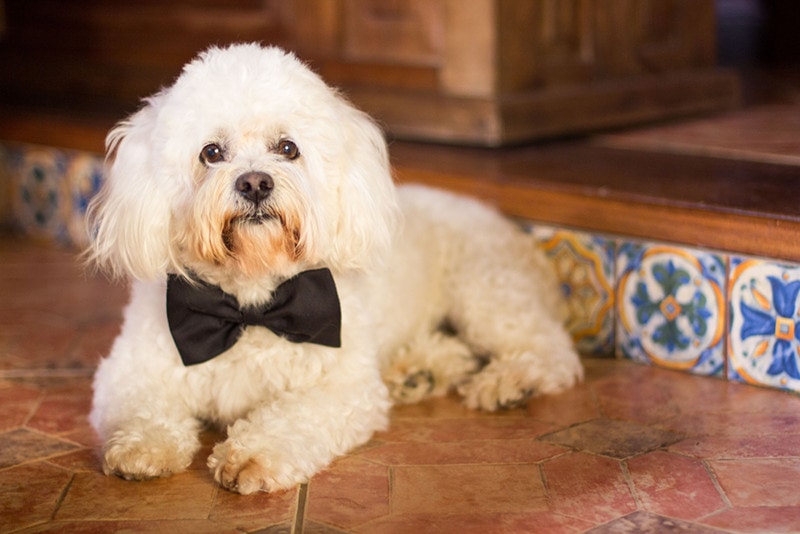
2. Moderate Energy Levels
Although playful and energetic, Maltese dogs don’t need to run for miles to get their daily exercise fix. A few short walks every day with some playtime thrown in should be just fine for most healthy adult Maltese. It’s important to remember, however, that dogs’ exercise needs differ depending on their age, health, and personal limitations.
3. Easy to Train
Maltese dogs are incredibly intelligent and learn quickly with those who will be consistent and positive when it comes to training them. These dogs are even known for their competence in agility and obedience events.
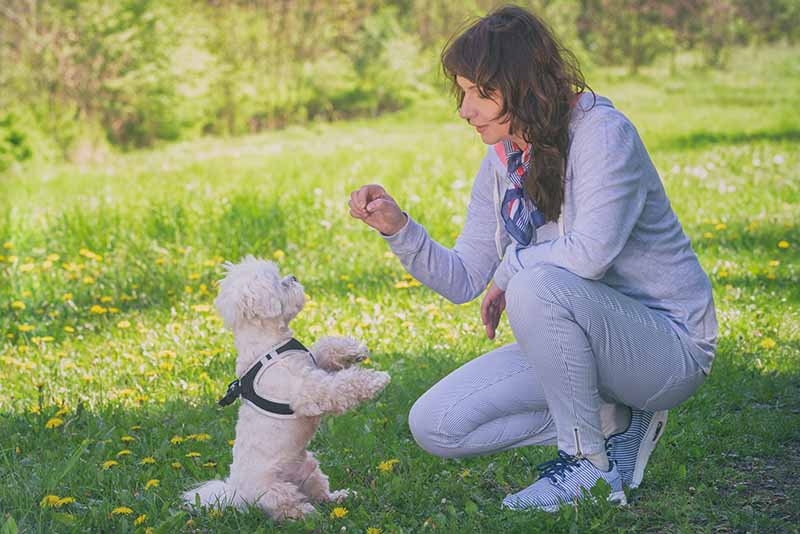
4. Watchdog Capability
While they might not be as impressive as a German Shepherd or a Doberman in terms of stance, size, and strength, the Maltese is nevertheless a capable watchdog.
Maltese are tuned in by nature, and this alertness, coupled with the infamous “big dog in a small dog’s body” personality they’re so well-known for, means they’ll likely let you know if they’re suspicious about something.
5. Low Tendency to Shed
Since they only shed minimally, Maltese dogs are sometimes popular choices for allergy sufferers and house-proud folks. Their coats can be a bit challenging to care for, however.

6. Great Personality
Maltese dogs are the epitome of the phrase, “Good things come in small packages.” Like any other dog, they need to be socialized to make sure all their best traits truly shine, but this breed is famously exuberant, playful, gentle, and devoted.
They also often have big characters for pups so small. Humorous, hardy, and confident, these dogs consider themselves to be very much a part of the family and won’t hesitate to make sure you remember it!
Just take into account that these are, of course, generalizations, and breed isn’t the be-all and end-all when it comes to a dog’s personality. Socialization, genetics, and life experiences also play a role in determining what a dog’s personality will be like.
7. Generally Healthy
The Maltese has an estimated lifespan of 12–15 years and is not linked to many health conditions. Nevertheless, while Maltese dogs are generally healthy, this doesn’t mean they’re immune to developing health conditions, so you should always be on the lookout for any signs that something is “off” with your dog.
It’s also crucial to take proper care of your Maltese by feeding them a complete, balanced diet in the correct portion sizes, exercising them sufficiently, and grooming them regularly (coat brushing, nail trimming, etc.).


Cons of Having a Maltese
1. Stubbornness
Being of a certain breed doesn’t mean all the dogs within that breed have the same personality, but one of the traits Maltese are known for is the tendency to be stubborn. As mentioned, they’re rarely short on character, and this can lead to them digging their heels in on occasion during training sessions.
What a Maltese needs is someone who will be patient and consistent with them and who will positively reinforce what they’ve learned (with praise, treats, etc.).
2. Fragile Body
Although Maltese dogs are generally healthy, they’re also pint-sized, so they aren’t suited to roughhousing with other dogs or boisterous play of any kind. They’ll need to be supervised closely around other dogs and children to make sure they don’t get injured.
If you’re looking for a dog that would make a great hiking or jogging buddy or that can stand up to roughhousing with other dogs at the local dog park, a Maltese won’t be the best choice.
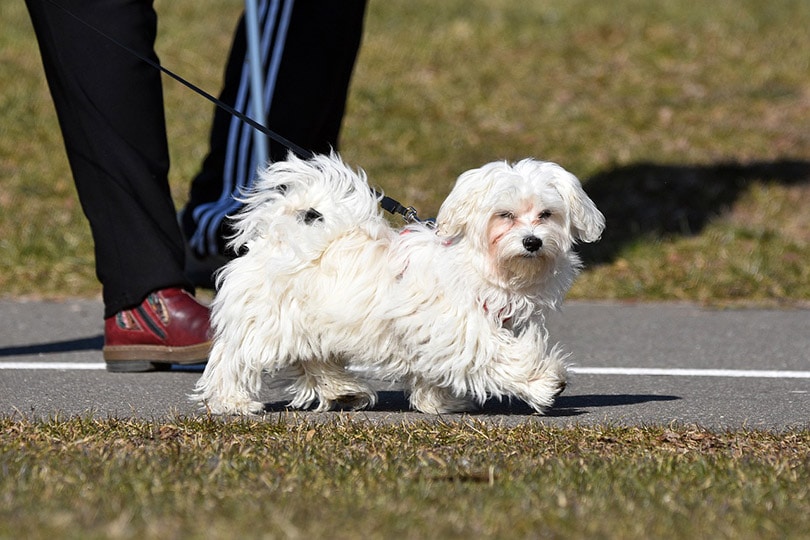
3. Not Well-Suited to Life With Young Kids
Maltese dogs can be easily hurt during boisterous play, so they’re not well-suited to families with children too young to know boundaries. They’re also known for being sensitive to loud sounds and highly charged environments and can even snap if they feel pushed too far. This is the case for any dog that feels stressed or frightened, though.
In short, a Maltese is more likely to get along better in a calmer environment with children who will be sensible with them.
4. High-Maintenance Grooming
One of the pros of Maltese dogs is that they shed minimally, but their long coats can be quite a challenge to care for. They can easily get tangly and knotty, so it’s best to brush them daily and bathe them on a regular basis to help keep their coat and skin in good condition. It’s also worth investing in a detangling spray to make your job a bit easier.
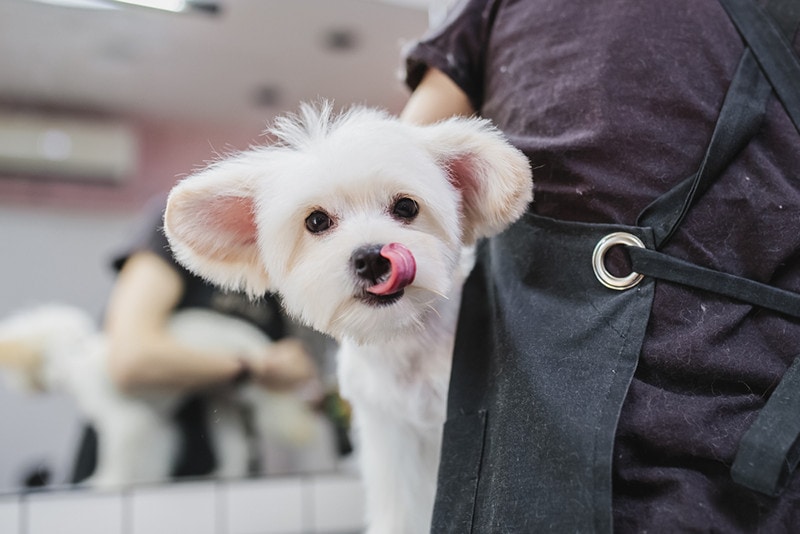
5. Price
You might want to consider adopting a Maltese because not only does this offer a dog a much-needed loving home, but it also costs a lot less than buying from a breeder. On average, Maltese puppies from breeders cost between $600 and $3,000. If you opt for a breeder, be careful—do your research and find a reputable one.
6. Risk of Obesity
Any dog that’s overfed is at risk of becoming obese, but it’s easy for well-meaning people to overindulge small dogs because they look so tiny (and it’s hard to say “no” to those eyes), and this can quickly lead to a weight problem.
Be sure to measure out your Maltese’s food portions so they’re getting exactly the amount they need every day, and break down treats into smaller pieces for them. While a full-sized treat might be fine for a large dog, it could easily be way too much for a toy breed.
You can get low-calorie or soft training treats that are formulated to be easy to break into pieces, so consider stocking up on some of these instead of hard treats that you struggle to snap in half. Speak to a vet if you’re not sure how much your Maltese should be eating per day.
If you need to speak with a vet but can't get to one, head over to PangoVet. It's our online service where you can talk to a vet online and get the personalized advice you need for your pet — all at an affordable price!


Conclusion
There are definitely more pros to Maltese than there are cons, but no matter what kind of dog you have, there are always going to be such things to think about. We urge you to see the “cons” in this list not necessarily as bad things, but rather things to think about or potential challenges you might or might not face with this breed.
As we always say, every dog is an individual and will come with their own set of great points and challenges.
- Related Read: Why Is My Maltese Licking So Much?
Featured Image Credit: Plernz, Shutterstock


